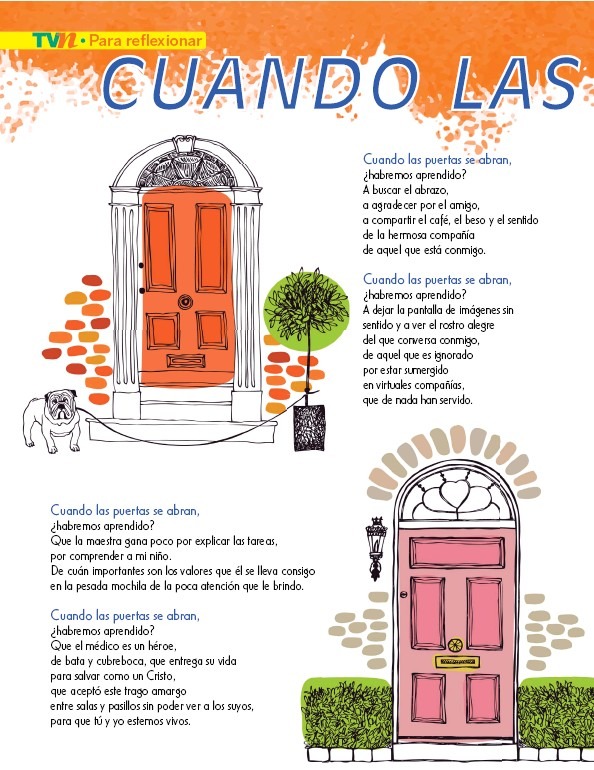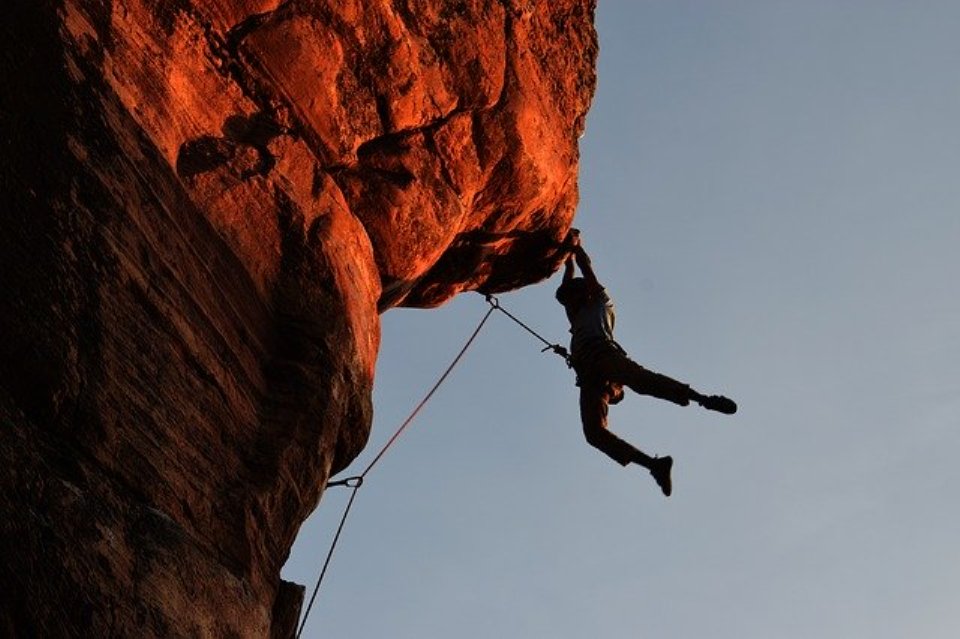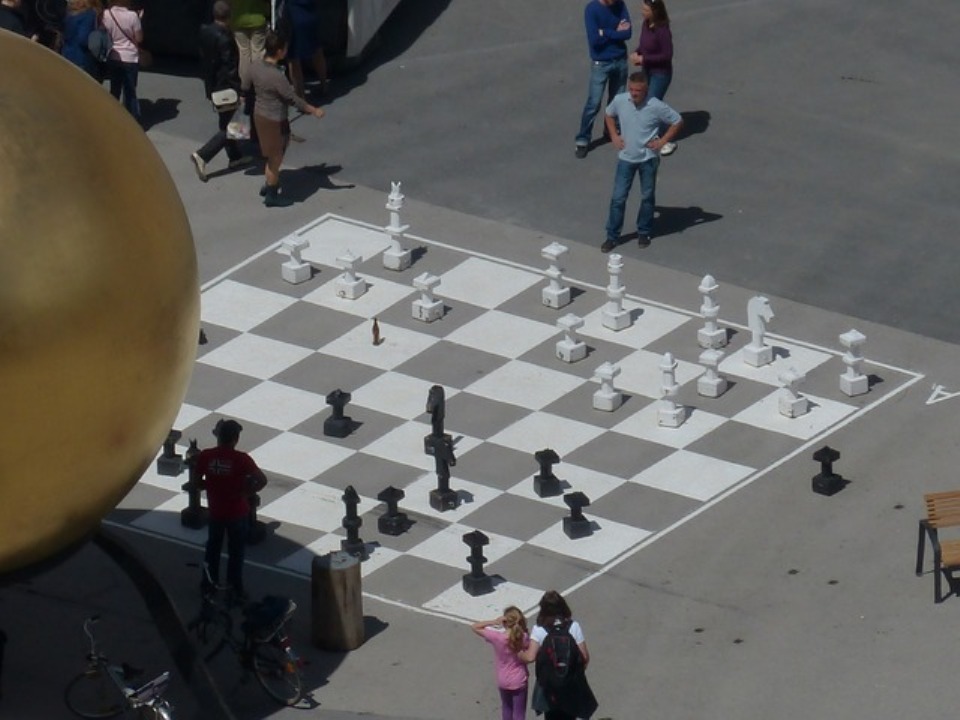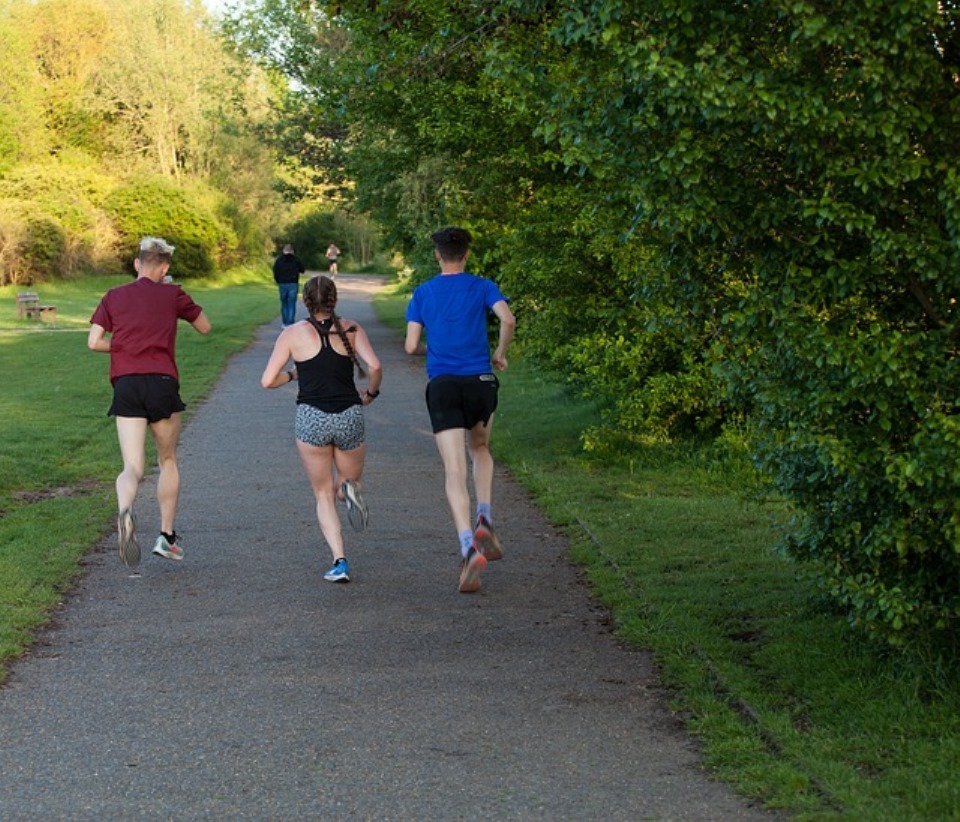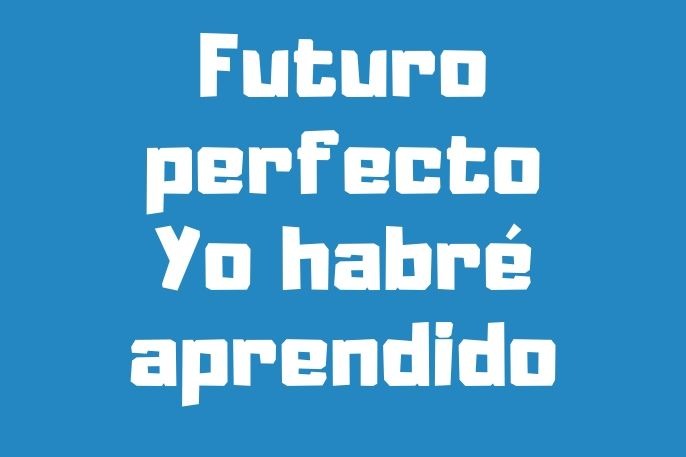
What will you have learned by the end of the term? I will have learned all the Spanish tenses (YES, YOU CAN!) – ¿Qué te habrás aprendido antes del final de curso? (Yo) (me) habré aprendido todos los tiempos verbales en español (¡VENGA, TÚ PUEDES!)
“Future Perfect” denotes an action completed before a definite moment in the future – Usamos el “Futuro Perfecto” para hablar sobre una acción que habrá terminado en un determinado momento del futuro. Esta acción habrá empezado y terminado antes del momento indicado.

A VIDEO WILL COME SOON: If the videos are too quick for you, use the playback speed and captions buttons for slow motion and subtitles. It is advisable that you listen to Spanish people talking. If you are a complete beginner, join our Spanish Lessons and contact Susana for more information +34 661 74 36 45.
1. Conjugación – Conjugation, how do we form it?
We use the verb to have in future plus the past participle. For verbs ending in -AR add (-ado) at the end and for verbs ending in -ER, -IR (-ido). – Se forma con el verbo haber en futuro más el participio pasado. Si el verbo acaba en –AR añadimos -ado y si acaba en -ER o -IR añadimos -ido.

2. Usos – when do we use it?
2.1. For actions that will happen / be completed by a certain time in future – Para acciones que estarán terminadas en un momento determinado del futuro:
Yo habré terminado los deberes para la hora que tú llegues (Presente Subjuntivo: para cuando tú llegues a casa)
I will have finished my homework by the time you get back.
La película ya habrá empezado cuando lleguemos. ¡Date prisa!
The film will have already started by the time we come. Hurry up!
A esta hora el domingo, habremos estado de vacaciones un mes.
This time on Sunday, I’ll have been on holiday for one month.
One of the meanings of the verb “llevar” is to indicate we have been doing the same thing for a while.
A esta hora el domingo, LLEVAREMOS de vacaciones un mes.
This time on Sunday, I’ll have been on holiday for one month.
LLEVO una hora esperando una mesa
I have been one hour waiting for a table.
3. DIFERENCIAS CON EL INGLÉS – DIFFERENCES WITH ENGLISH
There are not differences – No hay diferencias.
4. Marcadores temporales y expresiones de peligro – time and warning expressions
- *A esta hora el domingo, ya habremos llegado. By this time…
- Antes de que vuelva a casa, ¿habrás terminado de limpiar? When I come back…
- Antes de las 5 mañana, ya habremos descansado. By 5 o’clock tomorrow…
- Para 2025, se habrá descubierto una vacuna contra la malaria. By 2025..
- Para final de año, habremos ganado audiencia. By the end of the year…
- Para entonces, habrás conocido a alguien interesante. By then..
- Para cuando tú te cases, yo ya habré conocido a otra persona. By the time you have married…
- Dentro de cuatro años, vosotros habréis aprendido suficiente español como para ver una película sin subtítulos. In four years time…
*4 Translate these sentences and leave your answers in the REPLY BOX
5. Ejercicios – Exercises
At the end of the page there is a LEAVE A REPLY section to send us your answers to this exercise. Ask and answer questions similar to the examples underneath for each one of the photos. Use the expressions in number 4. Note: there is a list of verbs at the end of the exercise. – Al final de la página hay un apartado para enviarnos tus respuestas a este ejercicio “LEAVE A REPLY”. Pregunta y responde a preguntas similares a los ejemplospara cada una de las fotografías. Nota: hay un listado de verbos a al final del ejercicio.
- ¿Qué habrá hecho (él/ella) cuando lleguemos? Él/ella habrá …
- ¿Qué habrán hecho (ellos/ellas) antes de fin de año? Ellos/ellas habrán ….
- What will he/she have done by the time we get there? He/she will have ….
- What will they have done by the end of the year? They will have…
EACH NUMBER IS LINKED TO ONE OF THE PHOTOS, PLEASE, DO NOT CHANGE THE ORDER. Cada número está asociado con una foto, por favor, no cambies el orden:
- A esta hora el próximo domingo, ellos habrán terminado la competición.
- Antes de volver a casa, él …
- Antes de que vuelvan sus padres, ellos … will have cleaned the kitchen (translate, pls).
- Para final de año, él ……will have driven 20.000km (translate, pls).
- ¡Dentro de un año, ella habrá engordado 5 kilos! ¡Le encanta la pasta!
- Antes de su cumpleaños, ella ….
- Antes de que termine la competición, ellos ….will have won…
- …., ella ….
- …., ellos ….
- …, ella ….
- …, ella ….
- …, ellos ….
The following verbs can help you complete the sentences: TO… play chess / smoke / eat / walk / run / climb / listen to music / sleep / ride a bicycle-cycle / cook / drive / read – Los siguientes verbos te pueden ayudar a completar las frases: jugar al ajedrez / fumar / comer / pasear / correr / escalar / escuchar música / dormir / montar en bici-hacer ciclismo / cocinar-preparar la cena / conducir / leer
And remember!! Practice makes perfect
Come to practise with Spanish native speakers in our >> Off The Cuff Talks! << be brave and ask them ¿Qué estás haciendo?
Did you find it useful? Then, please… FEEL FREE TO SHARE IT!
Do you have any doubts or even a contribution? Please fill out the form at the bottom, and we will get back to you asap⏬
Join our Spanish lessons in Torre de la Horadada, San Javier, Mar Menor Golf Resort and Sucina (Casas Blancas)
This is just a small example of what you can learn. Get the support of the best Spanish Tutor in the area, Susana Romero, and enjoy learning Conversational Spanish.

